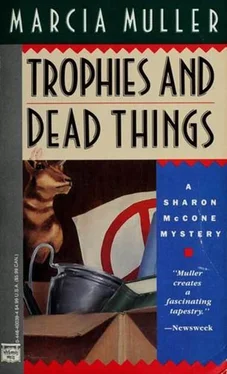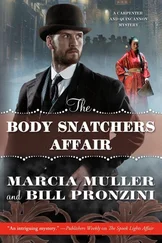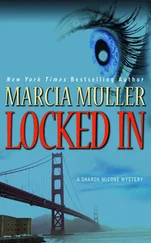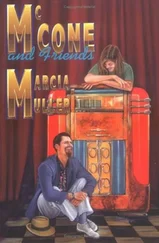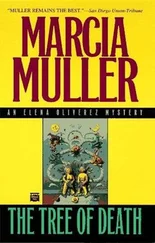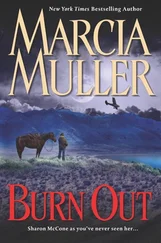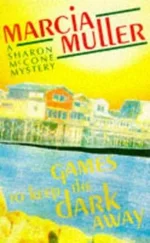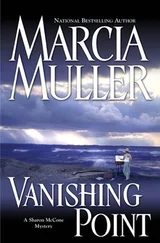After a few more minutes a thin blond-haired woman approached, her step tentative, expression anxious. She stopped a foot from the cubicle's entrance, as if afraid to go further. "Jess? The order of these stories-do you really want the mercy killing moved ahead of the drug busts and the new environmental plan?"
"Yes, I do. It's lost where you had it."
"But-"
"It's an important story, Linda. It's about… just reorder it."
Linda remained where she was, silent and indecisive. Goodhue added, "And when you see Roberta, tell her the lead-in to the drug busts needs more punch-a lot more. I want to see new copy by four-thirty."
Linda turned quickly and walked away.
Goodhue said to herself in a low voice, "You get too abrupt with them on days like this. It's something you've got to work on."
I stepped up to the entrance of the cubicle and saw she had pushed back from her desk, extending her arms in a little stretch. "Ms.Goodhue?"
She looked up, then snapped her fingers. "You're the woman from the law firm… what was it?"
"All Souls Legal Cooperative."
"Right. I know of you people. Did a series on alternative legal services back when I was a field reporter. McCone, is it?"
"Sharon McCone."
She stood and came forward, clasping my hand in a strong grip. "Call me Jess, everybody does. Let's go upstairs, huh? I have to make up for the three-fifty-five teaser."
"The…?"
She started through the busy newsroom toward the hall. "A one-minute spot. You've probably seen hundreds of them: 'Coming up on the six o'clock news.'"
"Of course." I trailed her down the hall. Goodhue was not as tall as I-five two or three to my own five six-but her brisk pace made up for her shorter stride. As she clattered down the hall in high-heeled shoes that matched her smart turquoise dress, she kept up a running chatter.
"Sorry I kept you waiting, but things are pretty frantic, and they'll get positively hairy from here on out. I've got to make up, do the spot, go over the scripts again with my co-anchor. You came at the right time, though; nobody, absolutely nobody, bothers me in my dressing room."
At the end of the hallway was a winding iron staircase. Goodhue led me up it, and down another long hall, past other rooms that hummed with activity. "Sports and weather," she said, waving her hand. "They're pretty much autonomous of the newsroom." Close to the end of the hall she opened a door and motioned me inside. "And this," she said, "is where I go when I want privacy."
It wasn't much of a dressing room: a long counter below a bulb-edged mirror; two wicker chairs, both somewhat raveled; a rack with changes of clothes hanging from it; a small adjoining bathroom. The counter was littered with cosmetics. Among them stood a vase of yellow roses that had seen better days.
Goodhue shut the door and grinned wryly at me. "Well, it ain't Broadway, but it's mine."
"I don't think they have it so good on Broadway, either."
"Probably not. You've got to go to Hollywood for the glitzy stuff." She frowned at the browning roses, swept them from the vase, and jammed them into a wastebasket under the counter. "Sit, while I make up," she said, and plunked down onto a stool in front of the mirror. "What's this about an inheritance?"
I sat in one of the wicker chairs-gingerly at first. "One of our clients has named you as a beneficiary in his will. Perry Hilderly. Do you know him?"
She considered, picking up a bottle of makeup base and beginning to apply it with practiced strokes. "The name's familiar. Who is… was he?"
"A tax accountant. Worked for a small firm out in the Avenues."
"Wait a minute!" She snapped her fingers. "Wasn't he the last victim of that sniper?"
"Right."
"Weird. Why would he leave me money?"
"I don't know. He made a holograph will-self-written, I without the aid of an attorney-and left no explanation."
"I don't get it. Would it be crass to ask how much he left me?"
"Somewhere in the neighborhood of a quarter of a million dollars." More, I reminded myself, if Grant went through with signing the document renouncing his inheritance, since it had been left on a share-alike basis.
Goodhue's hand paused in mid-stroke near her hairline. "Jesus! Why on earth…?"
"I'd hoped you could tell me."
She shook her head, set the makeup bottle down, and opened a compact of blush. After rummaging around on the counter for a brush, she began applying color to her cheekbones. "As far as I know, I never met the man. Tell me more about him."
"Before I do that, I have a few questions. Does the name Thomas Y. Grant mean anything to you?"
"Grant… Tom Grant, the attorney?"
"Right."
"I interviewed him for that series on alternative legal services I mentioned. Not that I approve of his particular alternative, but it fit with the theme. Actually, I was surprised to find him quite charming."
It was a temptation to ask what she'd thought of Grant's fetishes, but I merely asked, "What about someone named Libby Heikkinen?"
"No."
"David Arlen Taylor?"
"Uh-uh. Who are these people?"
"Your co-beneficiaries. Hilderly divided his estate four ways."
"This Hilderly must have been a wealthy man."
"Not in the usual sense. He inherited some money, invested well, and didn't have expensive habits."
"And he lived here in the city? Of course he did; I remember that he was shot on Geary, near his apartment. Was he from here originally?"
"I don't know much about his background, just that he was a radical during the Vietnam era, one of the founders of the Free Speech Movement at Berkeley."
"Berkeley!" She spun on the stool, the cosmetic brush falling from her fingers.
"Is that significant?"
She ignored the question. "What else can you tell me about him?"
"He was kicked out of college, worked for a magazine for a while, until they sent him to Vietnam as a correspondent. He stayed there for some time, had a son by a Vietnamese woman. She and the child were killed by mortar fire, and then Hilderly came back to the States. Married, had two more boys, divorced, and lived very quietly in the Inner Richmond until he was shot."
Goodhue was sitting very still now, hands locked together on her lap, makeup brush forgotten on the floor at her feet. "Just think of that," she said after a moment. "I reported the story of his death." There was an odd tremor in her voice, an emotion I couldn't define.
"Are you sure you never met him?"
"Very sure. The Free Speech Movement-that was right around the time I was born."
"It started in the fall of nineteen sixty-four."
Goodhue's focus was inward, searching. After a bit she said softly, "I was born in January of nineteen sixty-five."
I waited, but when she didn't elaborate, said, "I'm sorry, but I don't follow you."
"What I'm trying to say is… this Perry Hilderly may have been my father."
The statement came from so far out in left field that it took me a moment to formulate a response. "Why would you think that?" I finally asked.
"Because, my mother was at Berkeley then."
"So were thousands of other people."
"But not-" She broke off, looking at her watch. "Dammit! It's a long story, and I don't have much time."
"Why don't you start telling me now. I can wait around for the rest as long as necessary."
"All right." She swiveled back toward the mirror and fussed nervously with her hair. "As I said before, I was born in January of nineteen sixty-five. Out of wedlock." She paused, looking at me in the mirror, as if she was waiting for some reaction. When she didn't get one, she went on. "My mother's name was Jenny Ruhl. She was a campus radical, heavily into the protest movement. Or so I found out later."
Читать дальше
